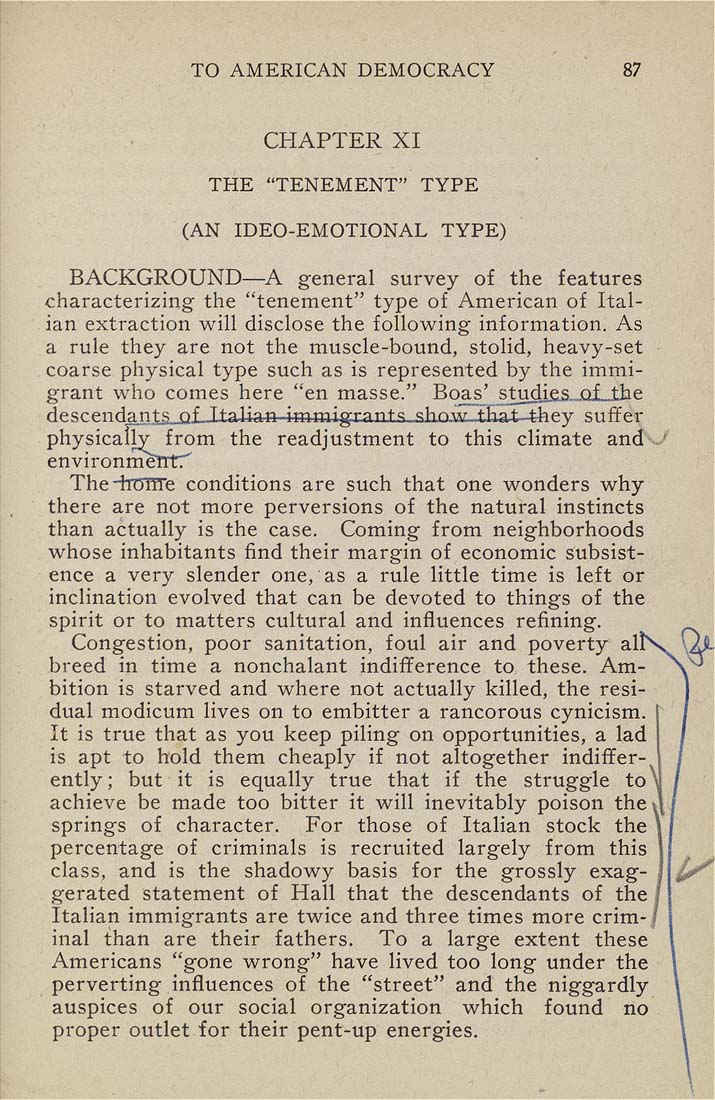TO AMERICAN DEMOCRACY
CHAPTER XI
THE "TENEMENT" TYPE
(AN IDEO-EMOTIONAL TYPE)
BACKGROUND—A general survey of the features
characterizing the "tenement" type of American of Ital¬
ian extraction will disclose the following information. As
a rule they are not the muscle-bound, stolid, heavy-set
coarse physical type such as is represented by the immi¬
grant who comes here "en masse." Boas' studi£S._QjLthe
rlp';rpnrlji_rit3_Qf Ttalinn immigrants gjimar tli'-it ihpj suffer
physically from the readjustment to this climate and '
environments
The-iroWe conditions are such that one wonders why
there are not more perversions of the natural instincts
than actually is the case. Coming from neighborhoods
whose inhabitants find their margin of economic subsist¬
ence a very slender one, as a rule little time is left or
inclination evolved that can be devoted to things of the
spirit or to matters cultural and influences refining.
Congestion, poor sanitation, foul air and poverty al^S. \/jL
breed in time a nonchalant indifference to these. Am- ^^
bition is starved and where not actually killed, the resi- I
dual modicum lives on to embitter a rancorous cynicism, i /
It is true that as you keep piling on opportunities, a lad /
is apt to hold them cheaply if not altogether indiffer- I /
ently; but it is equally true that if the struggle toM /
achieve be made too bitter it will inevitably poison the>\./
springs of character. For those of Italian stock the
percentage of criminals is recruited largely from this
class, and is the shadowy basis for the grossly exag¬
gerated statement of Hall that the descendants of the i
Italian immigrants are twice and three times more crim-.f
inal than are their fathers. To a large extent these
Americans "gone wrong" have lived too long under the
perverting influences of the "street" and the niggardly
auspices of our social organization which found no
proper outlet for their pent-up energies.
|








